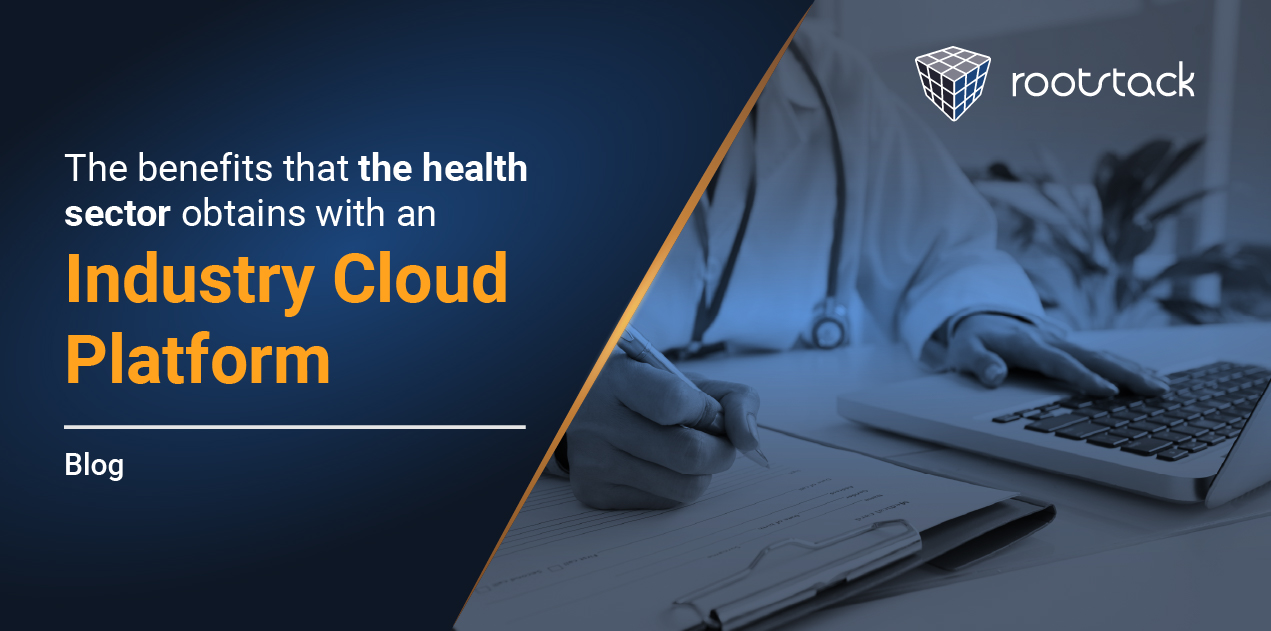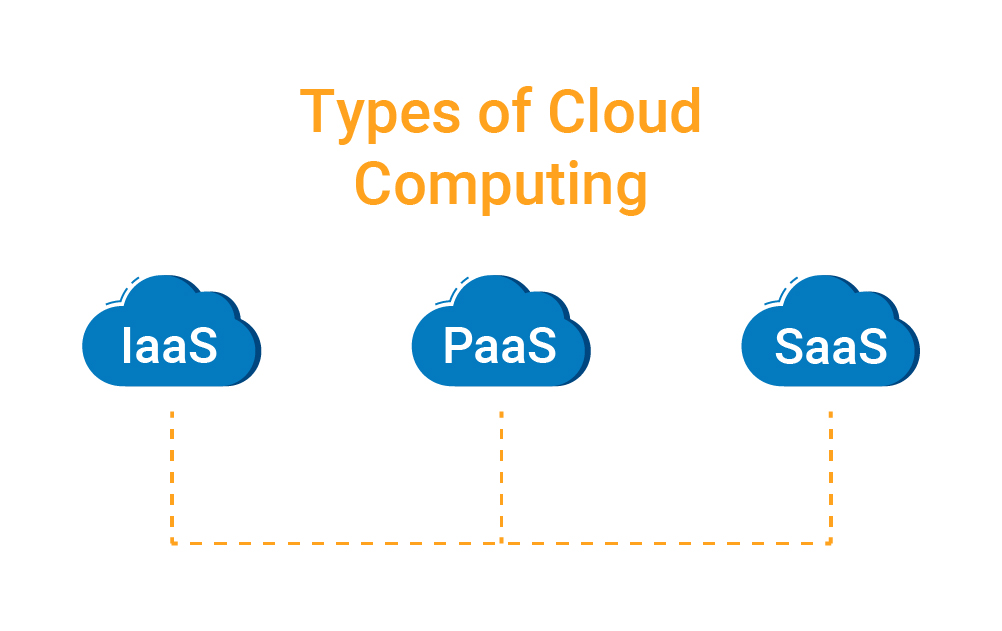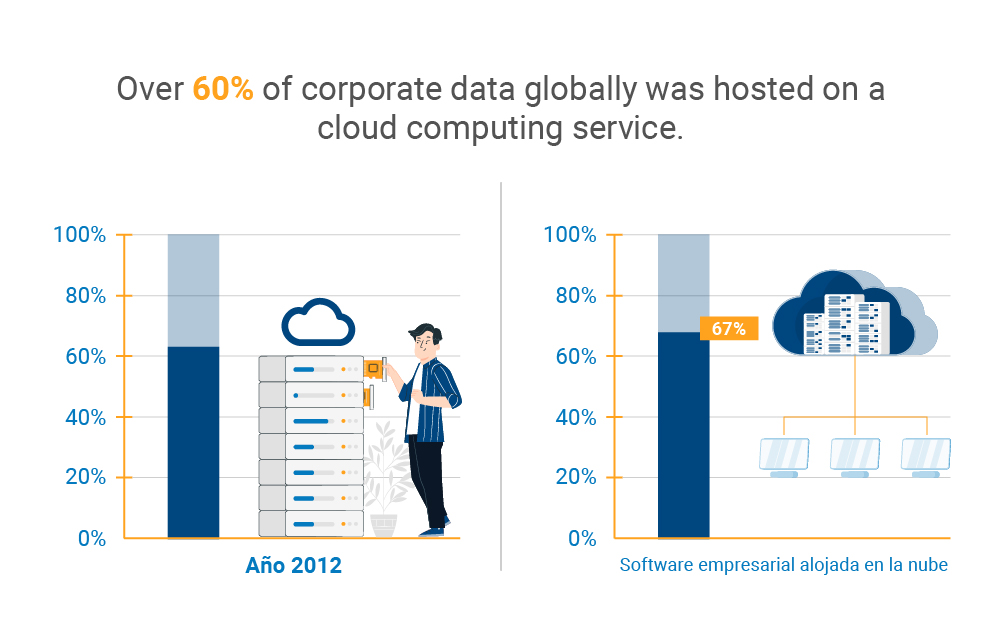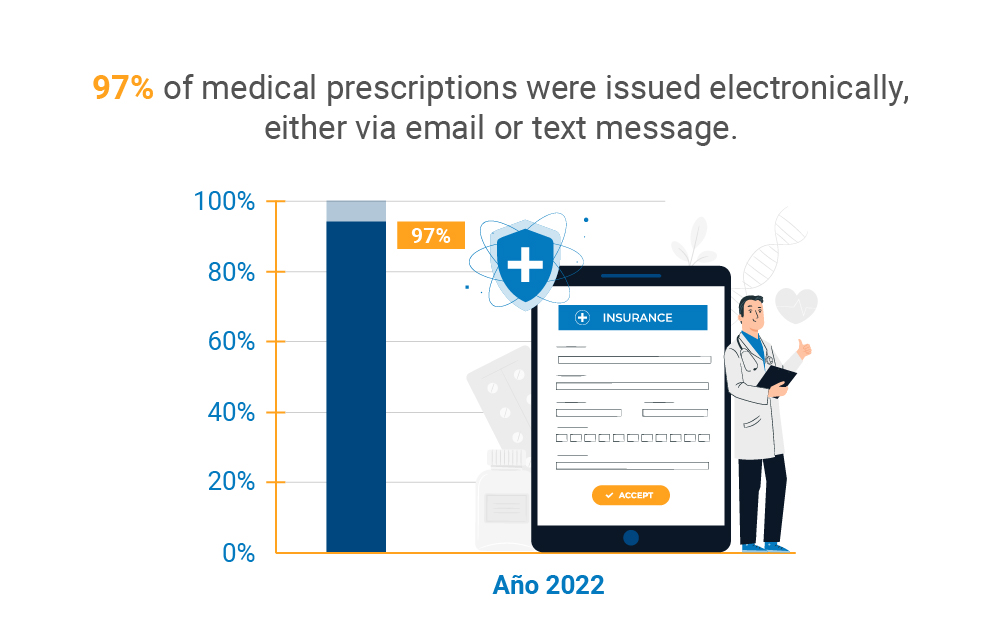Premium
Benefits that the health sector obtains with a cloud platform
April 03, 2023
Table of contents
Quick Access

Cloud computing is not a totally new trend within computing and software, but the acceptance it has had by the business world is a movement that has increased over the past year, largely motivated by the many benefits for companies.
Cloud computing refers to the delivery of computing services over the Internet, allowing users to access and use computing resources such as servers, storage, databases, software, and applications on demand, without having to manage them locally.
In cloud computing, computing resources are hosted and maintained by third-party providers, who offer them to users as a service, often on a pay-per-use basis. This means that users can scale up or down their computing resources as needed, without having to invest in or manage the physical infrastructure.

There are different types of cloud computing services, including infrastructure as a service (IaaS), platform as a service (PaaS), and software as a service (SaaS). Each type offers different levels of abstraction and control over the underlying computing resources.
Cloud computing and its use by industries
Motivated by low costs and not being limited to physical servers that need updating every time the internal network expands, companies have chosen to host their services in the cloud, in addition to obtaining hundreds of functions that streamline their productivity.
This is something that has spread globally. In the year 2022 alone, according to figures published by Statista, more than 60% of corporate data worldwide was hosted in a cloud computing service.
In addition to this, 67% of the business software structure is hosted in the cloud, this is just a reflection of what has already been explained previously: its low costs and the scalability benefits offered by cloud computing over servers. physical.

The healthcare industry and its technological challenges
The health industry currently faces several IT and software challenges that must be faced to keep up with other industries worldwide. Among the biggest challenges they must face are:
- Data management: The amount of data handled by hospitals, clinics, outpatient clinics, insurers and related companies is overwhelming, so they face the challenge of keeping it secure efficiently, as well as being able to manage it quickly whenever they need the history of a patient, for example.
- Interoperability: Many healthcare organizations use different electronic health record (EHR) systems that do not communicate with each other, making it difficult to share patient data between healthcare providers.
- Cybersecurity against attacks: what was said above: health facilities store confidential patient information that, if it falls into the wrong hands, could be used against them, so they need a secure system to protect them, being a computing platform in the cloud the most ideal option.
- Mobile Health: The rise of mobile health technology, including wearable devices and health apps, presents new opportunities for healthcare providers to improve patient care. However, ensuring the security and privacy of mobile health data is challenging.
- Machine learning and artificial intelligence: it is the trend towards which the health sector is heading. Having a machine learning system, or artificial intelligence, could help give faster diagnoses that help save a life. Integrating these technologies into internal systems is a challenge that must be solved.
- Ease of Use: Healthcare professionals have complex and busy workflows, and the ease of use of healthcare software can greatly impact your ability to deliver quality care. Ensuring that the software is intuitive and easy to use is an ongoing challenge.
Despite this, the healthcare industry has made leaps and bounds in terms of automation and the use of technology for its medical processes. For example, according to a Statista report, by the end of 2022, 97% of medical prescriptions were issued electronically, either via email or text message. This does not take away the technology needs that exist in the medical industry.

To address these challenges and complete them successfully, is required the collaboration of institutions and companies within the health industry and an experienced software agency, as well as the collaboration of a team of experts on the subject.
We are going to see in detail what are the benefits that a health care institution can obtain when migrating its systems and software to an industrial cloud computing platform.
Benefits that the health industry obtains when using cloud computing
Before knowing what benefits this solution provides, it is important to define what an industry cloud computing platform consists of. This is a term used to identify vertically oriented platforms that combine multiple requirements focused on the type of industry where they are used. They tend to be hybrid in nature, incorporating public and private environments so that organizations can meet the necessary workloads and maintain security in their systems.
The health industry is one of the most benefited from this type of cloud computing, since, due to its specifications and its vital handling of patient data, it needs a scalable, robust platform that is easy to adapt.
After the pandemic, the health industry was the most affected one: providers had to adapt to remote work, medical evaluations via the web or by video call, and all interoperability.
A cloud computing solution offers:
- Benefits of clouds in SaaS, PaaS, and IaaS, in addition to having a unified platform with all the necessary functions for health institutions
- All the unique requirements to operate in the healthcare industry.
- An industry cloud computing platform comes equipped with a variety of business capabilities available to IT teams to create and enhance the user experience and digital applications, such as a tool to search data in medical records or an application where patients access their records.
- Cloud computing solutions can be quickly scaled up or down based on the needs of a healthcare organization. This is especially important for healthcare organizations that may have fluctuating demands on IT resources.
- When an industry cloud computing platform is applied in a health institute, all the data and applications will be immediately available to all authorized personnel, they just need to have a secure internet connection and a device with which they can connect. . This improves patient care significantly.
- Another benefit, perhaps one of great importance, is the profitability of a cloud computing solution on a physical or local server. The cloud does not require hardware maintenance or a large investment to update its software, nor does it require a large team to manage it.
Final thoughts
In any industry, be it health or a totally different one, cloud computing can offer multiple benefits to those who use it, translating this into greater effectiveness on the part of the internal work team and a better experience to offer customers.
The healthcare industry will greatly benefit from the adoption of industrial cloud computing platforms since they are easily adapted to all their needs, as well as being cheaper since institutions do not have to pay for physical servers that can be expensive and more when they need to update them.
At Rootstack, we've successfully completed hundreds of cloud computing projects using the latest technologies, so we're confident we can meet your project needs. Do not hesitate to contact one of our advisors to achieve it.
We recommend you on video
Related Blogs

5 steps of UiPath RPA implementation

Skills that a Java development company must have to be a good technology partner

How to Hire an Android Developer for a Mobile App Project

How to Create a Search Bar with ReactJS: Benefits for a Healthcare Website

Trends in Cybersecurity: Protect your company's data
